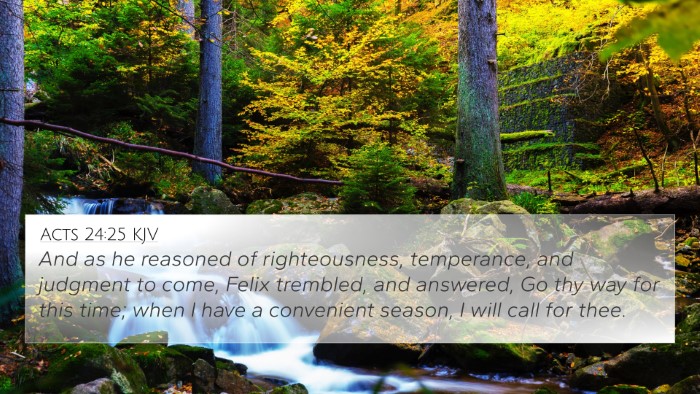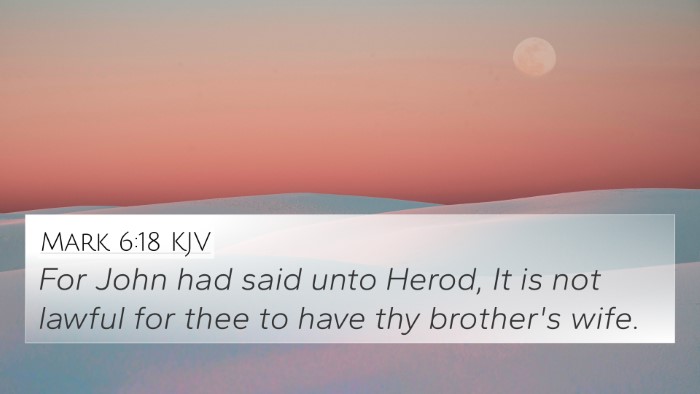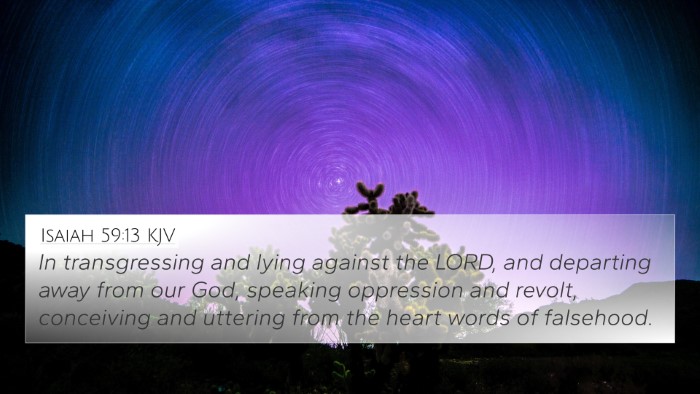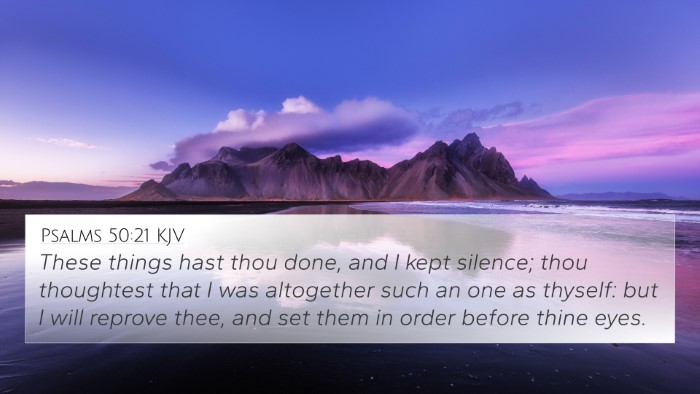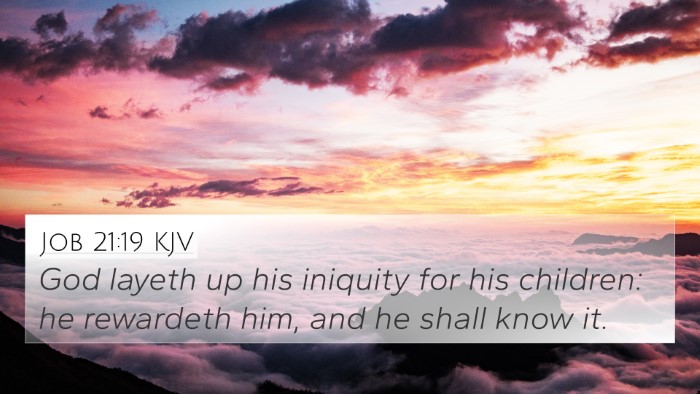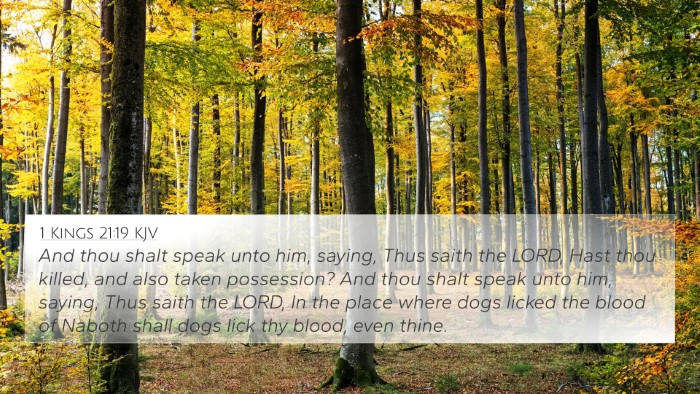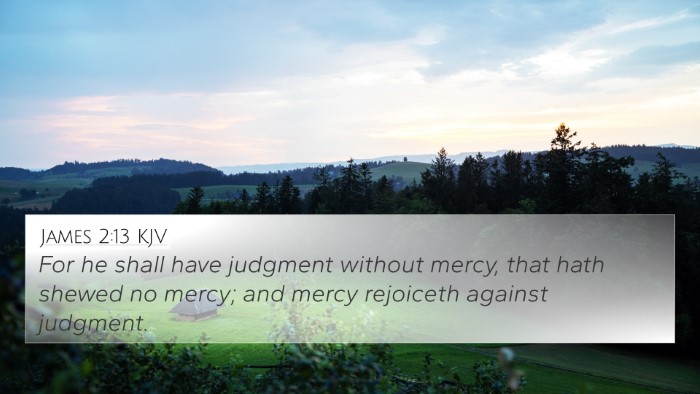Understanding Job 21:31
Job 21:31 presents a profound inquiry into justice and divine judgment as Job reflects on the fate of the wicked and the seeming prosperity they experience. This verse reflects Job's argument against the simplistic understanding of divine retribution held by his friends.
Verse Analysis
Job challenges the notion that the wicked always suffer in this life while the righteous prosper. Instead, he articulates the reality that many who are unrighteous appear to live without consequence, raising questions about God's justice.
Commentary Insights
-
Matthew Henry's Commentary:
Henry emphasizes the importance of considering the life of the wicked and their eventual fate. He notes that Job's statements serve as a counter to the traditional belief in immediate divine retribution. Job tests the notion that a lack of punishment implies a lack of wrongdoing.
-
Albert Barnes' Notes on the Bible:
Barnes discusses the rhetorical question posed by Job, underlining that in life’s circumstances, the wicked often thrive and are not swiftly punished. This perception leads to confusion regarding God's justice and mercy.
-
Adam Clarke's Commentary:
Clarke remarks on the moral implications of Job’s argument, indicating that Job poses a greater problem for the simplistic theology of his day. Clarke highlights Job's role in exposing the inadequacies of his friends' understanding of God and morality.
Bible Verse Cross-References
This verse can be linked to several other scriptures for deeper understanding:
- Psalm 73:12-14: The psalmist reflects on the prosperity of the wicked and questions the suffering of the righteous.
- Ecclesiastes 7:15: This verse addresses the perplexities of observing injustices in life, showing parallels to Job's sentiments.
- Habakkuk 1:13: Habakkuk questions God's apparent silence in the face of injustice, a theme echoed in Job's lament.
- Romans 9:14: Paul discusses God's righteousness in relation to mercy and judgment, relating to the fairness of God's actions.
- Proverbs 24:20: This verse communicates the idea that the wicked have no future, though it may seem otherwise in the present.
- Malachi 3:15: Malachi discusses the apparent lack of consequences for the wicked, paralleling Job's observations.
- Matthew 5:45: Jesus states that God causes the sun to rise on the evil and the good, suggesting a non-discriminatory nature of divine provision.
- Songs of Solomon 2:15: Although metaphorical, this verse speaks about the danger of letting perceived injustice overshadow God's promises and love.
- Philippians 3:18-19: Paul warns of those whose end is destruction, resonating with Job's points regarding true consequences.
- 2 Peter 2:9: Peter affirms that the Lord knows how to deliver the godly from temptation, countering the impression of impunity for the unrighteous.
Thematic Connections
The themes present in Job 21:31 invite a broader discussion on scriptural cross-referencing and how to interpret these connections:
- Justice and Injustice: The struggle with the reality of justice across the Scriptures invites individuals to contemplate God's ultimate intentions.
- Endurance of the Righteous: Job's plight and the reflections of related verses provide a framework for understanding suffering among believers.
- The Nature of God: Exploring the complexity of God's character across both Old and New Testaments enhances comprehension of divine nature.
- Role of Human Perception: How humans perceive and interpret divine justice informs the theological discussions present in the Scriptures.
Tools for Bible Cross-Referencing
Utilizing resources for cross-referencing can enrich one’s study of the Scriptures:
- Bible Concordance: Useful for finding key terms associated with numerous verses.
- Bible Cross-Reference Guide: An essential tool for identifying thematic relationships and interpretations.
- Cross-Reference Bible Study Methods: Incorporates various study techniques to uncover relational verses.
- Bible Reference Resources: Comprehensive guides to help navigate biblical links efficiently.
Conclusion
In Job 21:31, we witness a poignant exploration of divine justice that resonates throughout the Scriptures. Employing cross-referencing Biblical texts enhances the understanding of this challenging theme and engages with the broader discourse on God's character and the human condition. The references elucidated offer pathways for deeper study, encouraging believers to seek connections through comprehensive Bible cross-reference materials for enhanced scriptural understanding.






